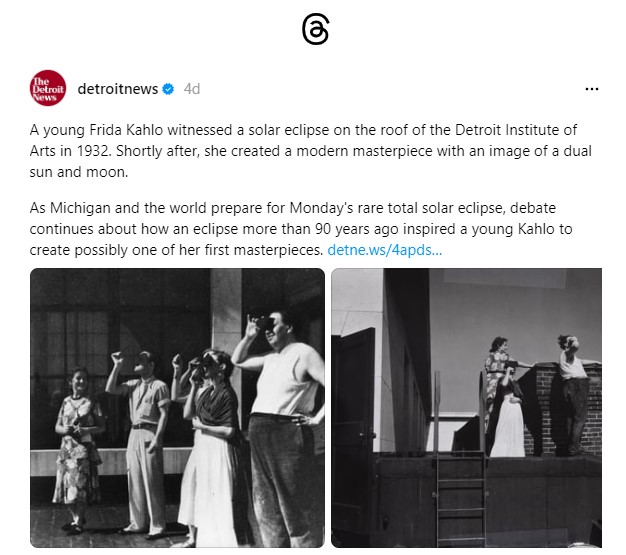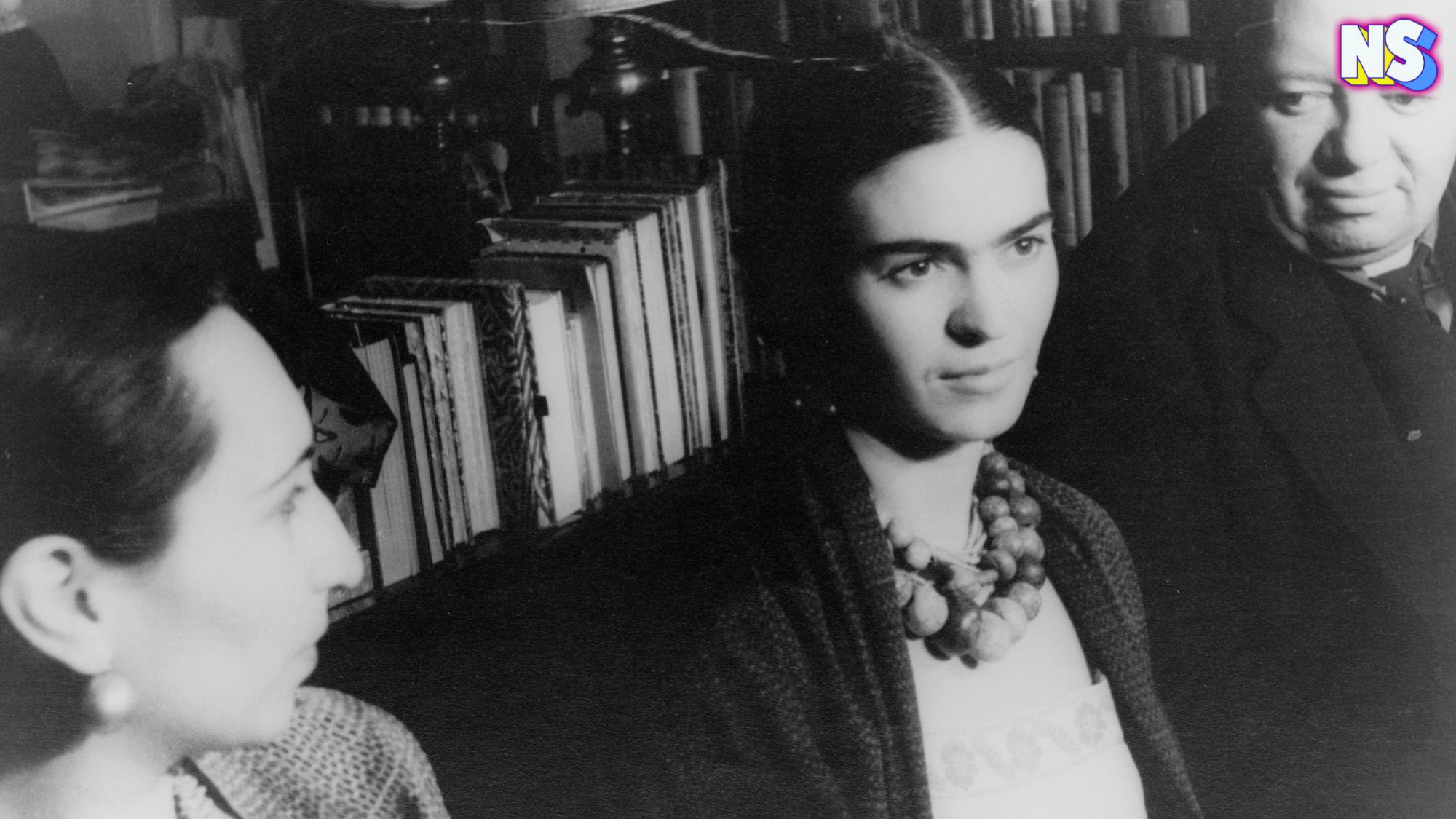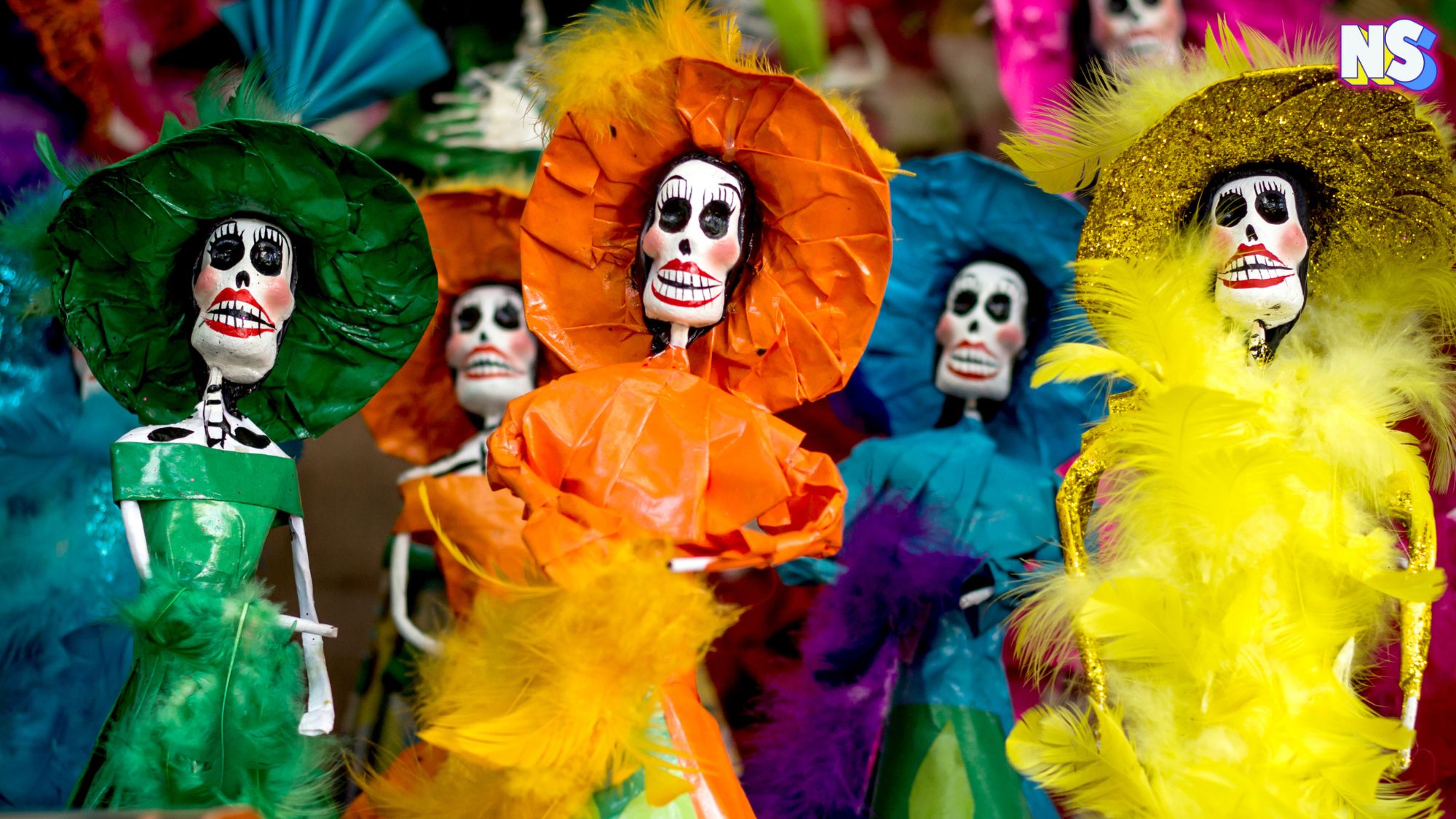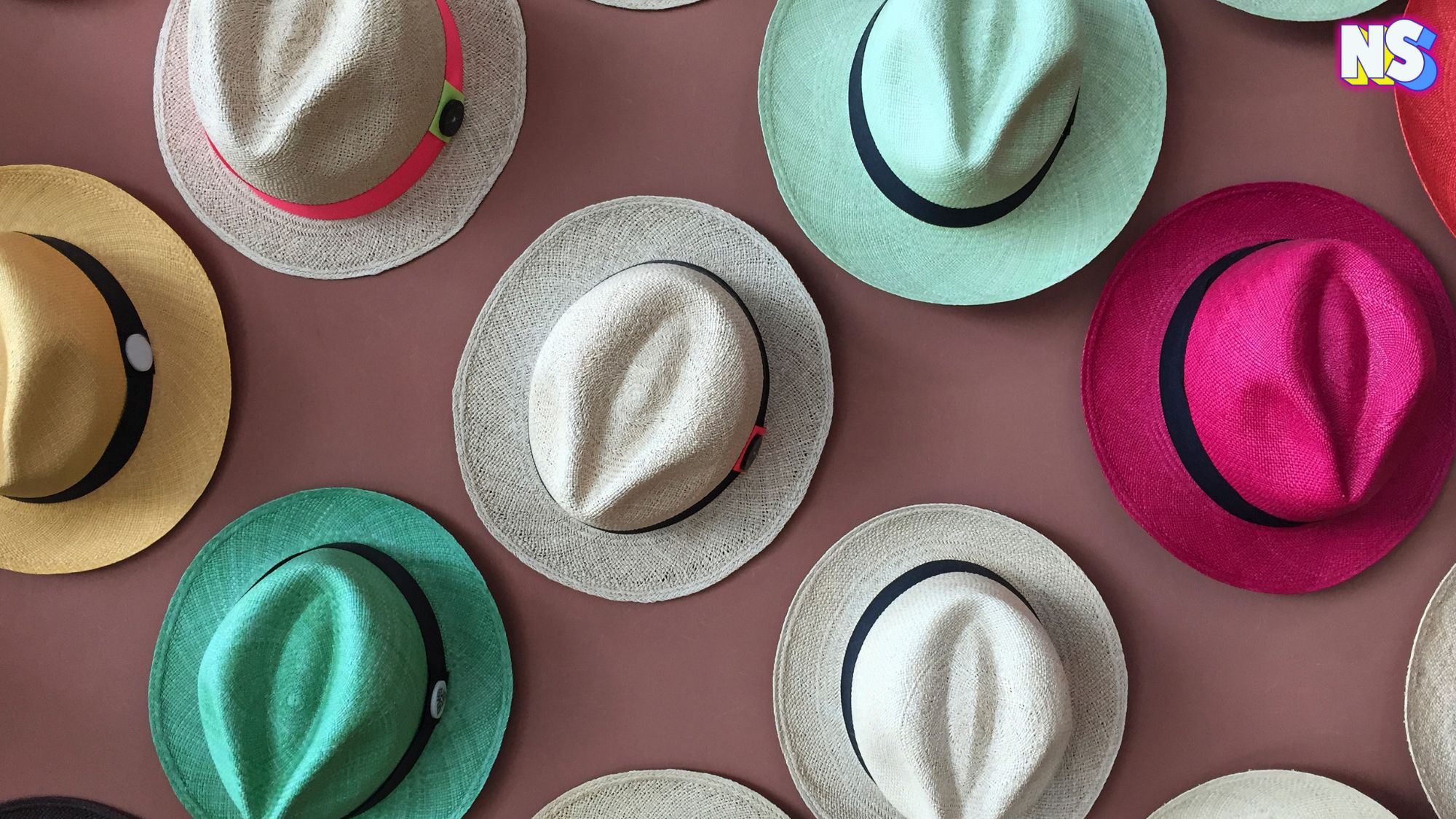Over 90 years ago, on August 31, 1932, Kahlo and her fellow artist and husband, Diego Rivera, witnessed a total solar eclipse in Detroit. How do we know? Well, during this year’s monumental celestial event, black and white photos of the pair, gazing up, resurfaced on social media. The images show the two, holding protective eye coverings and looking up.
So, thanks to social media, we know Kahlo witnessed the eclipse. But what few of us knew is how the 1932 solar eclipse inspired a Frida Kahlo masterpiece: “Self-Portrait Along the Borderline Between Mexico and the United States.”
“The total solar eclipse experienced in Detroit would have been one of the inspirations for the creation of this work, as two elements stand out in the artist's painting: the sun and the moon approaching each other,” Infobae writes.
In true Frida Kahlo fashion, in the piece, the artist portrays the struggle of living within two cultures. What’s different here is her use of the sun and the moon to present her inner turmoil. The solar eclipse changed her view of the sky, if only for this instance.
Eclipse Inspires a Masterpiece
“The solar eclipse happened the same year that Kahlo and Rivera spent time in Detroit, and it is often said that it was a turning point for both artists' careers. The DIA even had a special exhibit devoted to both of the artists in 2015,” Detroit Metro Times writes.
During this year’s solar eclipse, many took to social media to post the image of a young Kahlo looking up at the sky, alongside her husband and others on the DIA rooftop.
“A young Frida Kahlo witnessed a solar eclipse on the roof of the Detroit Institute of Arts in 1932,” The Detroit News writes on its Threads account, along with the 1932 picture of the couple. “Shortly after, she created a modern masterpiece with an image of a dual sun and moon. … debate continues about how an eclipse more than 90 years ago inspired a young Kahlo to create possibly one of her first masterpieces,”
The debated masterpiece inspired by the eclipse is Kahlo’s “Self-Portrait on the Borderline between Mexico and the United States.” In it, Kahlo is clearly influenced by the sun and moon’s relationship.
Kahlo created a modern masterpiece — a self-portrait that resonates with dual symbolism. In her piece, she painted the sun and moon, capturing the essence of duality and transformation.
‘Self-Portrait Along the Borderline Between Mexico and the United States’
Executed in oil on metal, “Self-Portrait Along the Borderline Between Mexico and the United States” (1932) presents Kahlo's tension between two worlds.
Kahlo was 25 years old when she painted the portrait, which shows her in a pink dress holding a Mexican flag in one hand and a cigarette in the other. The painting is inspired by Kahlo's experience living in what she called "Gringolandia."
In the portrait, Kahlo stands on a boundary stone marking the border between Mexico and the United States. Influenced by the eclipse, cast their celestial influence solely over Mexico.
On the Mexican side, a partially ruined pre-Columbian temple stands amidst verdant plant life, indigenous art, and Aztec iconography. The sun and moon radiate brilliance, while a quarter moon rests gently on a cloud. In stark contrast, the American side reveals bleak skyscrapers and a factory belching smoke from four Ford chimney stacks. The American flag, besmirched by industrial haze, lacks the dazzle of Mexico’s real sun and moon.
“She painted this piece when she was living in America while Diego was working on a series of murals for the Ford Motor Company. She was homesick for Mexico,” iUniversity Prep explains.
Frida’s vision of America is starkly negative — a reduction to the cogs and wheels of its industrial arm. The single cloud over the U.S. symbolizes not nature’s beauty but industrial pollution. The factory’s four chimneys resemble automatons, devoid of life. And where Mexico boasts plants with white roots, the U.S. has three round machines tethered by black electric cords.
Art in a New Light
“Self-Portrait Along the Borderline Between Mexico and the United States” encapsulates what so many fans love about the Mexican artist. Kahlo’s longing for her homeland, and her defiance of societal norms, sums up modern day identity struggles so many immigrants face. As she straddles the border in her art, she still challenges the viewer to question our own allegiances and the dichotomies that shape our lives.
The solar eclipse inspired Kahlo to present the complexities of identity and the ever-shifting borderlines of existence in a new way. Some would say the eclipse inspired her to shed light on these struggles in a new perspective.





